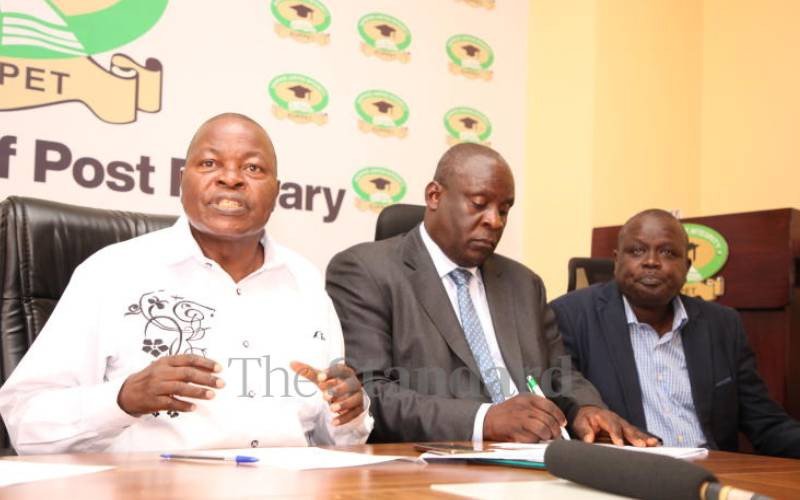×
The Standard e-Paper
Stay Informed, Even Offline

A teacher's union claims the transition to Junior Secondary Schools has failed learners and called for its disbandment.
Kenya Union of Post Primary Education Teachers wants a crisis meeting of stakeholders convened to deliberate the future of JSS and a re-think of its placement.